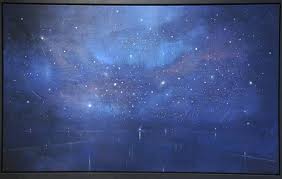Success is only Achieved by Performing Righteous Deeds, not Wishful Thinking
“It will not be in accordance with your desires, nor those of the People of the Scripture (Jews and Christians), whoever works evil will have the recompense thereof, And he will not find any protector or helper besides Allah. And whoever does righteous deeds, male or female, and is a believer, such will enter Paradise, and not the least injustice, even to the size of a Naqir, will be done to them. And who can be better in religion than one who submits his face to Allah; and he is a Muhsin (a doer of good deeds)…” [Soorah an-Nisa (4): 123-125]

BIRD OF PARADISE
Qatadah said, ‘We were told that the Muslims and the people of the Scriptures mentioned their own virtues to each other. People of the Scriptures said, ‘Our Prophet came before your Prophet and our Book before your Book. Therefore, we should have more right to Allah than you have.’ Muslims said, ‘Rather, we have more right to Allah than you, our Prophet is the final Prophet and our Book supersedes all the Books before it.’ Allah sent down, ‘It will not be in accordance with your desires, nor those of the People of the Scripture (Jews and Christians), whoever works evil, will have the recompense thereof,…’ [See, Tafseer Ibn Katheer]
Also, al-Awfi reported that Ibn Abbas (radhi allahu anhu) commented on this verse, ‘The followers of various religions disputed; the people of the Tawrah said, ‘Our Book is the best Book, and our Prophet (Moosa u) is the best Prophet.’ The people of the Injil (also) said similar (statements), the people of Islam said, ‘There is no religion except Islam, our Book has abrogated every other Book, our Prophet is the final Prophet and you were commanded to believe in your Books and adhere to your Books.’ Allah judged between them saying, ‘It will no be in accordance with your desires, nor those of the People of the Scripture (Jews and Christians), whoever works evil, will have the recompense thereof.’ [At-Tabaree 9: 230]
This verse, thus, indicates that religion is not accepted on account of wishful thinking or mere hopes. Rather, the accepted religion relies on what resides in the heart (i.e. faith, sincerity) and which is made truthful through actions. Every person who claims to be on the truth is not considered as such or he does not attain the merit merely on account of his words, rather, the key lies in obeying Allah and following what He has legislated. This is why Allah said following this,’whoever works evil, will have the recompense thereof…’ Similarly, Allah said in Soorah al-Zalzalah, ‘So whoever does good equal to the weight of an atom, shall see it. And whoever does evil equal to the weight of an atom, shall see it.’ [Soorah al-Zalzalah (99): 7-8]
It was reported that when the above verses [Soorah an-Nisa (4): 123-124] were revealed, they became hard on the Sahabah y. Ibn Abi Hatim recorded that Aa’isha (radhi allahu anha) said, ‘O Messenger of Allah! I know the hardest verse in the Qur’aan. He asked, ‘What is it, O Aa’isha!’ I said, ‘whoever works evil, will have the recompense thereof…’ He (sallallahu aliahi wa-sallam) said, ‘That is what strikes the believing servant, even the problems that bother him.’ [Abu Dawud]
Abu Hurayrah (radhi allahu anhu) said, ‘When the verse, ‘whoever works evil, will have the recompense  thereof…’ was revealed, it was hard on the Muslims. The Messenger of Allah (sallallahu aliahi wa-sallam) said to them, ‘Be steadfast and seek closeness. Everything that afflicts the Muslim, even the thorn that pierces his skin and the hardship he suffers, will be an expiation for him.’ [See, Tafseer Ibn Katheer]
thereof…’ was revealed, it was hard on the Muslims. The Messenger of Allah (sallallahu aliahi wa-sallam) said to them, ‘Be steadfast and seek closeness. Everything that afflicts the Muslim, even the thorn that pierces his skin and the hardship he suffers, will be an expiation for him.’ [See, Tafseer Ibn Katheer]
Thus, Allah will surely inflict punishment on His slaves as a recompense of evil actions; either in this life, which is better for him, or in the Hereafter (we see refuge with Allah from this end.) Aa’isha (radhi allahu anha) reported that the Prophet (sallallahu aliahi wa-sallam) used to say, ‘O Aa’isha! Beware of the sins that are belittled, for verily, they will be taken account of by Allah.’ [Musnad Ahmad] and in another Hadeeth Abdullah Ibn Mas’ood (radhi allahu anhu) reported that the Messenger of Allah (sallallahu aliahi wa-sallam) said, ‘Beware of the sins that are belittled. For verily, they are gathered in a man until they destroy him.’ [Musnad Ahmad] Also, in another Hadeeth of Musnad Ahmad, Allah’s Messenger (sallallahu aliahi wa-sallam) made an example of sins that are taken lightly by saying that they are like a people who settle in barren land. Then their leader orders them to go out at a time and bring back a stick each until they have gathered a large number of sticks. They then kindled a fire and burned everything that they threw into it
Allah says further, ‘and he will not find any protector or helper besides Allah.’ Ali Ibn Abi Talha reported that Ibn Abbas (radhi allahu anhu) said, ‘Unless he repents and Allah forgives him.’ [At-Tabaree 9: 239]
‘And whoever does righteous deeds, male or female, and is a believer, such will enter Paradise and not the least injustice, even to the size of a Naqir, will be done to them.’ Allah mentions His kindness, generosity and mercy in accepting good deeds from His servants, whether male or female, with the condition that they embrace the faith. He also stated that He will admit the believers into Paradise and will not withhold any of their good deeds, even the weight of a Naqir – speck on the back of a date stone. Therefore, ‘Do not under rate any good act, even if it is offering drinking water from your bucket to one, who is seeking a drink, or meeting your brother with a cheerful face.’ [Saheeh Muslim (4): 2026]
Allah then said, ‘And who can be better in religion than one who submits his face (himself) to Allah…’ meaning, performs the good actions in sincerity for his Lord with faith and awaiting the reward with Allah, ‘and he is a Muhsin’ i.e., He follows the correct guidance that Allah legislated on the tongue of His Messenger.
These are the two conditions, in the absence of which, no deed will be accepted from anyone, and they are – sincerity and correctness. The work is sincere when it is performed for Allah alone, and it becomes correct when it conforms to the Sharee’ah. Consequently, the deed becomes outwardly correct with following the Sunnah and inwardly correct with sincerity.
When any deed lacks either of these two conditions, the deed becomes invalidated. For instance, if one lacks the pillar of sincerity in his work, he becomes a hypocrite who performs deeds to shows off.
And the importance of Ittiba is manifest in the following narration. Narrated Anas Ibn Malik (radhi allahu anhu), ‘A group of three men came to the houses of the wives of the Prophet (sallallahu aliahi wa-sallam) enquiring how the Prophet (sallallahu aliahi wa-sallam) worshipped (Allah). When they were informed about that, they considered their worship insufficient and said, ‘Where are we compared to the Prophet (sallallahu aliahi wa-sallam) since his past and future sins have been forgiven.’ Then one of them said, ‘I will offer the prayer throughout the night forever.’ The other said, ‘I will fast throughout the year and will not break my fast.’ The third said, ‘I will keep away from women and will never marry.’ Allah’s Messenger (sallallahu aliahi wa-sallam) (upon hearing the incidents, summoned them and) asked, ‘Are you the same people who said so-andso? By Allah! Indeed, I am the one who fears Allah the most amongst you, and the most pious of you; yet, I fast and break my fast, I pray and I sleep, and I marry women. So, he who opposes my Sunnah, is not from me.’ [Saheeh al-Bukharee]



 Posted by SAKINA AND SARA
Posted by SAKINA AND SARA 













